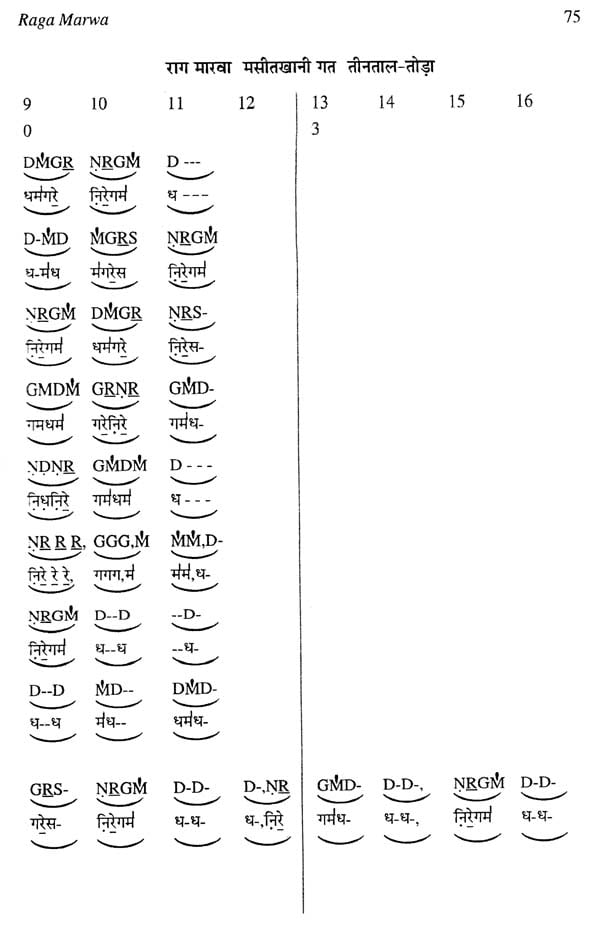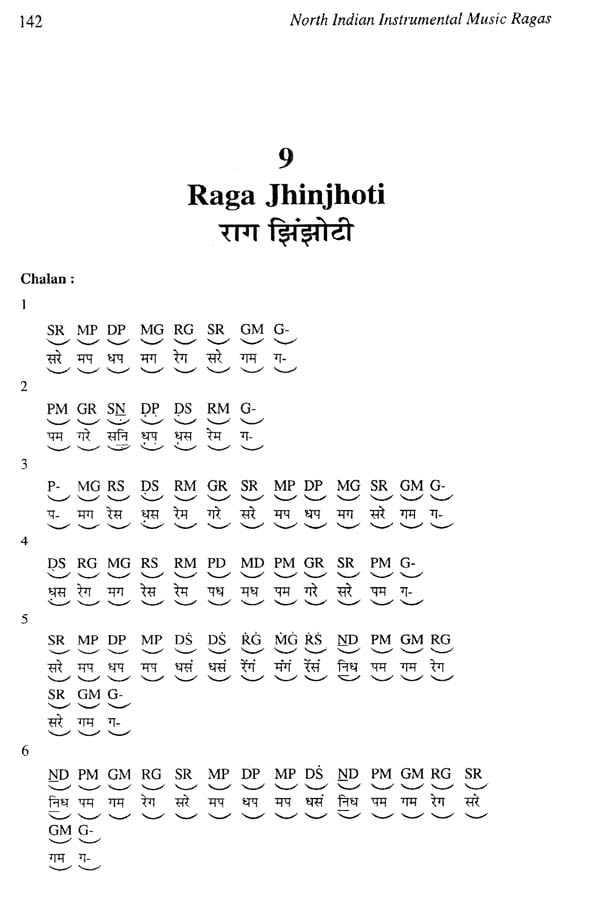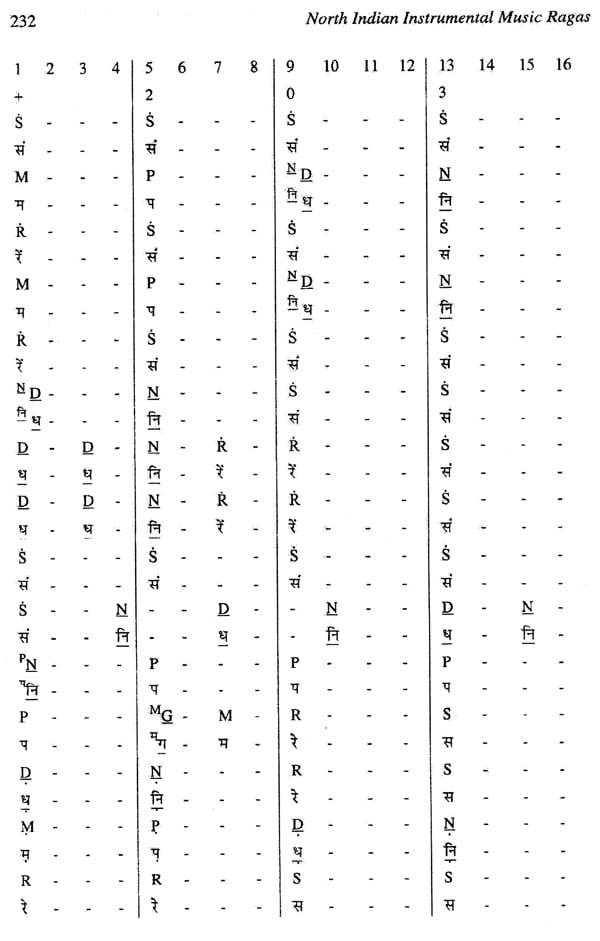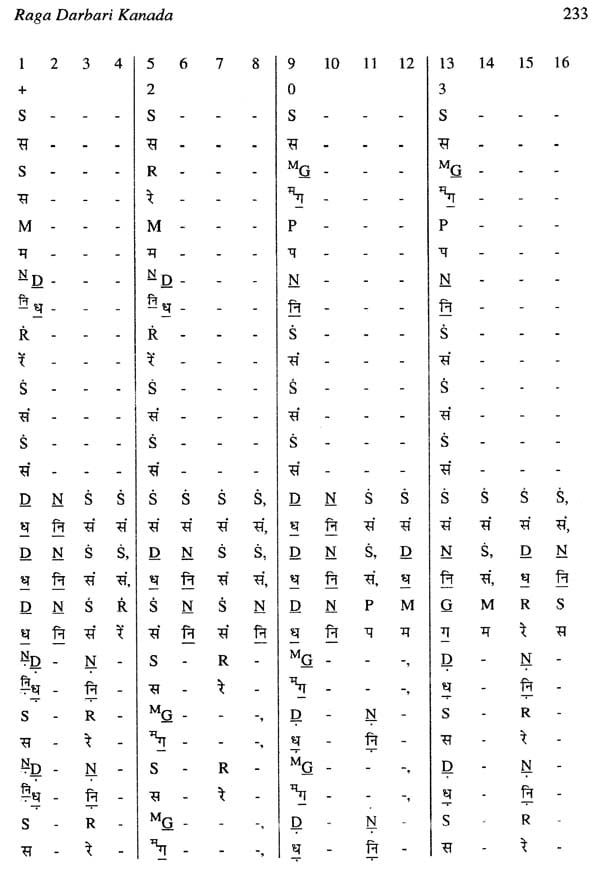
North Indian Instrumental Music Ragas (for Higher Studies)
Book Specification
| Item Code: | NAV133 |
| Author: | Dr. Prateek Chaudhari |
| Publisher: | Sanjay Prakashan |
| Language: | English |
| Edition: | 2017 |
| ISBN: | 9788174533777 |
| Pages: | 234 |
| Cover: | HARDCOVER |
| Other Details | 10.00 X 8.00 inch |
| Weight | 690 gm |
Book Description
Indian Classical Music, also known as Hindustani Classical Music, is one of the richest music found all over the world due to it's versatility and the system being followed, which gives one the freedom to create remaining within a framework of rules. This Music is based on the system of a Raga. A Raga is the bane of Indian Classical Music. A Raga can be defined as a melodic structure with certain rules and the freedom given for creativity within the same. Instrumental Music forms a very important part of Hindustani Classical Music, also referred to as North Indian Classical Music. It has attracted millions across the world.
A Raga presentation has got a sequential progression and in Indian Instrumental Music also, it can be found. While teaching a Raga, this sequential progression of presentation is also kept in mind. As i belong to the traditional Jaipur Senia Gharana of Sitar players, i have tried to document the same in a systemic manner, according to the same.
This book documents the sequential progression of the delineation of a Raga as has been taught to me by my Guru. In some Ragas, have also mentioned the system followed by Pandit Bhatkhande ji, in addition, wherever have found a difference in the Gharana based teaching and the Bhatkhande system.
This system of sequential progression followed in each Raga in this book, is the same, as is taught traditionally in the Jaipur Senia Gharana . It begins with the Theory of the Raga, followed by the "Chalan" of the same Raga. Thereafter, the Alap of the Raga, in almost all the Saptaks is given as a glimpse. This is then followed by the Maseetkhani Gat (composition in slow tempo) of the Raga, which includes the Sthayi, the Manjh (middle section) and Antara.
The Maseetkhani Gat is followed by the Tanas of the same Gat. This is then followed by the S Razakhani Gat (composition in fast tempo) with ‘Jit's Sthayi and Antara. The Tanas of the same Gat follow thereafter. Finally the Raga concludes with the Jhala at the end. This book has tried to depict jand document the process of delineation of a particular Raga in a sequential manner.
In this book, I have chosen thirteen Ragas. It serves only as a glimpse of those Ragas, as Indian Classical Music is so vast and cannot be written completely. This book will serve of extreme value to those students of Instrumental Music, who have learnt some of the basic Ragas and want to further learn some of the advanced Ragas.
Dr. Prateek Chaudhuri is the son and disciple of the Internationally Renowned Sitar Maestro Pandit Debu Chaudhuri (Padmabhushan Awardee). He is himself also Sitarist of repute of the country, belonging to the traditional Jaipur Senia Gharana and is graded as an "A Class" artist of India. He has received his training from his. father and also under the Great Doyen of Sitar of yester years Sitar Sudhakar Ustad Mushtaq Ali: Khan Sahab and his father and Guru Pandit Debu Chaudhuri. The author belongs to the Jaipur Senia Gharana branch of the famous Senia Gharana, which traces it's name from Mian Tansen, the Doyen of Indian Classical Music. Dr. Chaudhuri represents the 9" generation of Sitar players from Maseet Sen (either from Guru to Shishya or father to son), who have all played the 17 fretted Sitar and is still continuing the same tradition till date. This Gharana has an uninterrupted lineage of Sitar players from Maseet Sen, playing the Sitar which has got only 17 frets, instead of 19, 20 or 21, which can normally be seen now.
The author has also been the featured artist in most of the Major Festivals of the country and has extensively travelled all across the country and the world giving lecture demonstrations and concerts. He has also been honoured by many organizations of the country in recognition of his invaluable contribution to the world of music. The awards include the Jadubhatta Award from Kolkata, Pandit Nikhil Bannerjee Award from Lucknow, The Best Instrumentalist Award from Delhi and the Surmani Award from Mumbai, in addition to several other honours and accolades received over the years. Dr. Chaudhuri has also been featured in the prestigious National Programmes of Music of the All India Radio and Doordarshan and also has done several creative performing projects with other artists of India and Abroad.
At present, he is not only an eminent performing artist of the country but, also an Associate Professor in the Faculty of Music, University of Delhi, which is a rare combination.














